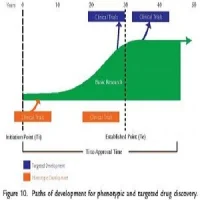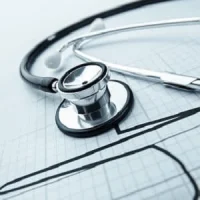Stem cell therapy has gained popularity as a treatment option for patients with severe and end-stage heart failure. However, researchers at Tel Aviv University caution against using cells from the host patient to repair tissue as this method may cause harm to patients. Their study is published the journal Circulation.
"We found that, contrary to popular belief, tissue stem cells derived from sick hearts do not contribute to heart healing after injury," said Prof. Jonathan Leor of TAU's Sackler Faculty of Medicine and Sheba Medical Center, who led the study. "Furthermore, we found that these cells are affected by the inflammatory environment and develop inflammatory properties. The affected stem cells may even exacerbate damage to the already diseased heart muscle."
Tissue or adult stem cells – "blank" cells that can act as a repair kit for the body by replacing damaged tissue – encourage the regeneration of blood vessel cells and new heart muscle tissue. But the TAU's study suggests that stem cells, like any drug, can have adverse effects. The findings indicate that stem cells used in cardiac therapy should be drawn from healthy donors or be better genetically engineered for the patient, Prof. Leor points out.
In addition, the TAU team also discovered the molecular pathway involved in the negative interaction between stem cells and the immune system as they isolated stem cells in mouse models of heart disease. After exploring the molecular pathway in mice, the researchers focused on cardiac stem cells in patients with heart disease.
The results could help improve the use of autologous stem cells – those drawn from the patients themselves – in cardiac therapy. "We showed that the deletion of the gene responsible for this pathway can restore the original therapeutic function of the cells," Prof. Leor said.
The researchers are currently testing a gene editing technique (CRISPER) to inhibit the gene responsible for the negative inflammatory properties of the cardiac stem cells of heart disease patients. "We hope our engineered stem cells will be resistant to the negative effects of the immune system," Prof. Leor added.
Source: American Friends of Tel Aviv University
Image Credit: Pixabay
References:
Naftali-Shani, Nili et al. (2017) Left Ventricular Dysfunction Switches Mesenchymal Stromal Cells Toward an Inflammatory Phenotype and Impairs Their Reparative Properties Via Toll-Like Receptor-4. Circulation. doi.org/10.1161/CIRCULATIONAHA.116.023527
Latest Articles
heart disease, heart failure, Stem cell therapy, Cardiac Stem Cells
Stem cell therapy has gained popularity as a treatment option for patients with severe and end-stage heart failure. However, researchers at Tel Aviv University caution against using cells from the host patient to repair tissue as this method may cause har










